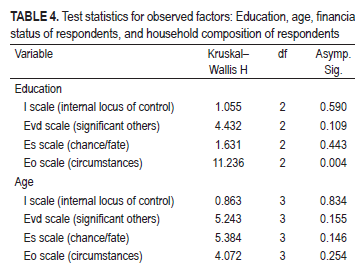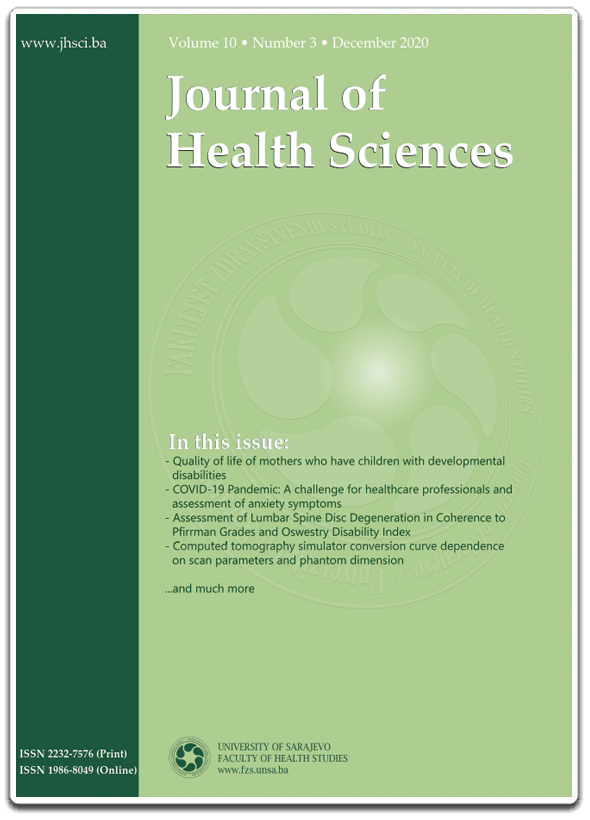Health locus of control and sociodemographic factors in older adults: Insights from exercise programs – Cross-sectional study
DOI:
https://doi.org/10.17532/jhsci.2023.2373Keywords:
Older adults, exercise, health locus of controlAbstract
Introduction: Aging is an inherent and progressive process affecting all living organisms, characterized by physical, mental, and psychological changes. With the societal changes that involve rapid information exchange, there is also a change in the behavior of older individuals. The aim of this study is to analyze the level of health locus of control in older adults participating in exercise programs and its association with certain sociodemographic factors.
Methods: This cross-sectional study was conducted from November 2018 to March 2019. A total of 200 individuals aged 65 and older, who were participating in free exercise programs, were included. Among them, 190 were female, and only 10 were male. For the purposes of this study, the Health Locus of Control Scale (Croatian- ZLK-90) and a general questionnaire on demographic characteristics were used. The questionnaire was completed in a traditional pen-and-paper format.
Results: The results of the Health Locus of Control Scale revealed that, among the respondents, the Eo scale (Circumstances) component had the highest median score of 21.00, while the Evd scale (Important Others) showed the lowest median at 18.00. Furthermore, the findings indicated statistically significant differences in certain subscales of the Health locus of control scale. Specifically, there was a significant difference in the Eo scale (Circumstances) associated with the respondents’ level of education, with the highest ranks found among individuals with the lowest education level. A statistically significant difference was also observed in the factor related to respondents’ living arrangements, demonstrating a significant variation in the I scale (Internal Locus) for those who live alone.
Conclusion: This study unveiled the health-related locus of control level and its correlation with demographic characteristics
in older adults engaged in exercise programs. The findings provide valuable insights into the relationship between the health locus of control and specific traits of the active older population.
Downloads











